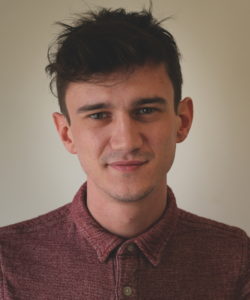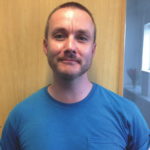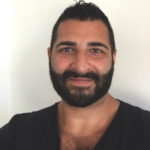PrEP: The price
of pleasure
A court case over a transformative drug has cut to the heart of increasingly hard decisions in allocating NHS cash
Growing up as a gay man in the shadow of HIV, the dread of acquiring the disease loomed heavily over Harry Dodd. “I used to live on the ninth floor of a tower block and thought: If I get a positive diagnosis, I’ll throw myself off the balcony,” says the 25 year old. But for the past few years, that visceral fear has been erased. Dodd has been taking pre-exposure prophylaxis (PrEP), a drug that prevents the infection of HIV. “You can’t overstate the impact of no longer being afraid of your sex life,” he adds.
A close call on Christmas Eve 2012, when a man he was seeing told him he was HIV positive after having unprotected sex, was enough to convince Dodd to enrol in a two-year study, known as PROUD, which provided PrEP to those liable to contract HIV. “It says a lot about his level of shame that his fear over telling me was so great that he was unable to until it was nearly too late. With PrEP, that could have been avoided.”
The study found that a daily dose of the pill Truvada reduced the risk of transmission by nearly 90 per cent. Now others could have access to the preventative medication, described as “transformative” by HIV charities in combating a disease for which there are currently 6,000 new diagnoses a year. Just before Christmas, the NHS announced a three-year clinical trial involving 10,000 participants to gauge how best to prescribe it, and to whom, before making it more widely available.
The decision followed a toxic legal fight that found the NHS accused of fuelling homophobia after it said in May last year that it would not be rolling out PrEP, despite the success of the PROUD study. The NHS insisted that funding it was the responsibility of cash-strapped local authorities. The National AIDS Trust (NAT) challenged the decision, and, in August, the High Court found in its avour. The NHS said it would not fully fund the drug but would make £10 million available to Public Health England for the 10,000-strong trial.

But a good news story turned nasty when NHS England described PrEP as a “measure to prevent HIV transmission, particularly for gay men who have high-risk condomless sex with multiple male partners”. It added that it could no longer confirm funding for other some treatments.
A subsequent Daily Mail headline read: “WHAT A SKEWED SENSE OF VALUES – NHS told to give out £6,000-a-year lifestyle drug to prevent HIV – as vital cataract surgery is rationed.”
Why, added The Times, should a child with cystic fibrosis be deprived of treatment that helps them breathe just so that gay men can have sex without condoms?
“NHS England should be impartial,” says NAT’s Kat Smithson. “The statement they issued was value laden and revealed bias – they should have foreseen some of the homophobic response from the media.” The message has filtered down – one 24 year old who had just tested HIV-positive sobbed to Big Issue North, feeling he was “now viewed as a drain on society”.
Dodd draws parallels between PrEP and the introduction of the contraceptive pill for women in 1960, pointing out it has the potential to be a similar watershed moment for gay men. “The pill provided a sense of security for the first time. There was a similar social backlash, predicting it would result in wild women and the breakdown of society.”
Commissioning PrEP costs between £10m and £20m a year, yet campaigners point out that when you factor in the lifetime price-tag of treating one person with HIV – up to £380,000 – you need only prevent 100 infections a year to offset its long-term cost.
“There are parallels in discussions around whether the NHS will offer surgery to people who are smoking or obese,” says Mitzy Gafos, social scientist for PROUD. “There’s an attitude that you’re supposed to take responsibility for yourself in terms of preventing ill health, which flows into ‘Why can’t people just use condoms?’ There are real risks of not only homophobia but also racism – African populations being the most at-risk group for HIV acquisition.”
One-third of the participants in the PROUD trial had HIV-positive partners. Despite being labelled a “promiscuity pill” by tabloids, PrEP did not lead to higher rates of sexually transmitted infections, such as chlamydia.
In San Francisco – where roughly 20 per cent of the city’s 30,000-strong gay and bisexual male population are thought to be using PrEP – new HIV infections dropped by 17 per cent in 2015 compared with the year before. Four London sexual health clinics saw a fall of 40 per cent last year, compared with 2015, which some experts ascribe to growing numbers buying generic versions of Truvada from online pharmacies in India and Swaziland for around £40 a month.
Of the 544 people in the PROUD trial, only 350 still want access to PrEP. Dodd no longer takes it. “The sense of security it provides enabled me to develop a long-term relationship – something I couldn’t do before,” he says. “People take it for the period they need and won’t take it forever – as opposed to the lifetime cost of treating someone for HIV.”
 “Three years ago, I had an unconfirmed HIV test and I thought taking a daily pill would avoid that level of anxiety and heartache again. This is the first time in my adult life where I haven’t lived in perpetual fear. My mental health feels better – I can make better choices. When I first used to tell people I was on PrEP, they’d block me on dating apps – that perception has changed now. We’ve got equal marriage and that’s nice on the surface, but scratch beneath that, there’s a view that gay men’s health doesn’t matter – or HIV is their own fault. You can’t ‘opt out’ of HIV as a gay man – it’s a health inequality. One of the things that people on the PROUD study struggled to talk about was the increase in pleasure. It was acceptable to say ‘I’m not afraid anymore’, but you weren’t allowed to admit to liking sex without a condom. For gay men, having sex without a condom – ‘barebacking’ – is a bad, sinful, disease-ridden thing. Whereas for straight people, it’s just called ‘having sex’. Your mother had bareback sex – that’s how you’re here. We’re not indifferent party boys – we care about our health and that of others.”
“Three years ago, I had an unconfirmed HIV test and I thought taking a daily pill would avoid that level of anxiety and heartache again. This is the first time in my adult life where I haven’t lived in perpetual fear. My mental health feels better – I can make better choices. When I first used to tell people I was on PrEP, they’d block me on dating apps – that perception has changed now. We’ve got equal marriage and that’s nice on the surface, but scratch beneath that, there’s a view that gay men’s health doesn’t matter – or HIV is their own fault. You can’t ‘opt out’ of HIV as a gay man – it’s a health inequality. One of the things that people on the PROUD study struggled to talk about was the increase in pleasure. It was acceptable to say ‘I’m not afraid anymore’, but you weren’t allowed to admit to liking sex without a condom. For gay men, having sex without a condom – ‘barebacking’ – is a bad, sinful, disease-ridden thing. Whereas for straight people, it’s just called ‘having sex’. Your mother had bareback sex – that’s how you’re here. We’re not indifferent party boys – we care about our health and that of others.”
 “It’s talked about as a game-changer a lot in the press but people not wanting to die of Aids is not a game. The use of PrEP is changing the world around us – thankfully the UK won’t now be left behind. Whether we admit it or not, the fear of HIV affects us all in one way or another – it only disappeared because of PrEP. I still use condoms and my sexual behaviour hasn’t changed much, but the one big fear has been taken out of the equation. It’s truly liberating. I can just about afford to buy it online but many millions of people in the UK cannot. The NHS has a duty to all of us. Good news about a pill which can prevent people from dying a long, agonising death from Aids doesn’t sell papers. Gays demanding a pill so they can throw away their condoms at the expense of curing children dying of rare cancers is juicier. Our beloved NHS dragged its heels after years of successful research. It was only prejudice, ignorance and homophobia standing in the way.”
“It’s talked about as a game-changer a lot in the press but people not wanting to die of Aids is not a game. The use of PrEP is changing the world around us – thankfully the UK won’t now be left behind. Whether we admit it or not, the fear of HIV affects us all in one way or another – it only disappeared because of PrEP. I still use condoms and my sexual behaviour hasn’t changed much, but the one big fear has been taken out of the equation. It’s truly liberating. I can just about afford to buy it online but many millions of people in the UK cannot. The NHS has a duty to all of us. Good news about a pill which can prevent people from dying a long, agonising death from Aids doesn’t sell papers. Gays demanding a pill so they can throw away their condoms at the expense of curing children dying of rare cancers is juicier. Our beloved NHS dragged its heels after years of successful research. It was only prejudice, ignorance and homophobia standing in the way.”
 “Five months ago, I had someone arrested who was purposefully going around infecting people with HIV. That’s when I realised PrEP doesn’t just protect you from being ‘silly’, it safeguards against dangerous individuals. Even though I still use condoms, I think it’s important to use it as an extra layer of protection – I pay £45 per month for a generic version of Truvada from the internet. Many people still keep their HIV status secret, with shame restricting them from telling people about their medical condition. If you were diabetic and felt like that, it would sound bizarre.”
“Five months ago, I had someone arrested who was purposefully going around infecting people with HIV. That’s when I realised PrEP doesn’t just protect you from being ‘silly’, it safeguards against dangerous individuals. Even though I still use condoms, I think it’s important to use it as an extra layer of protection – I pay £45 per month for a generic version of Truvada from the internet. Many people still keep their HIV status secret, with shame restricting them from telling people about their medical condition. If you were diabetic and felt like that, it would sound bizarre.”
